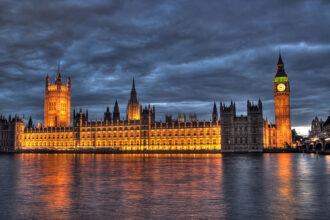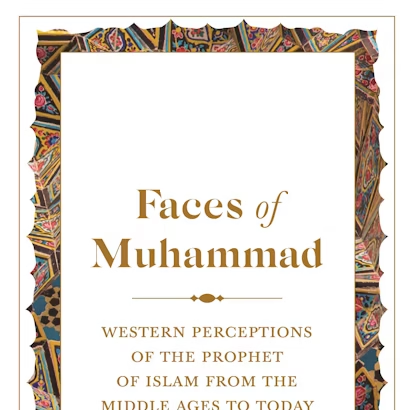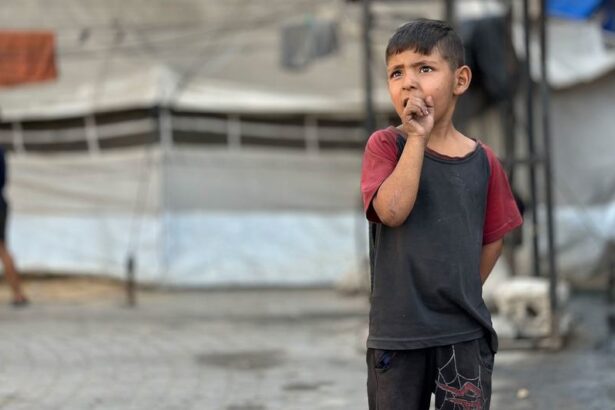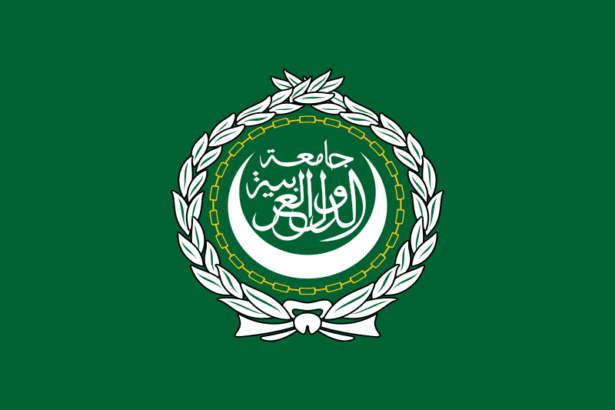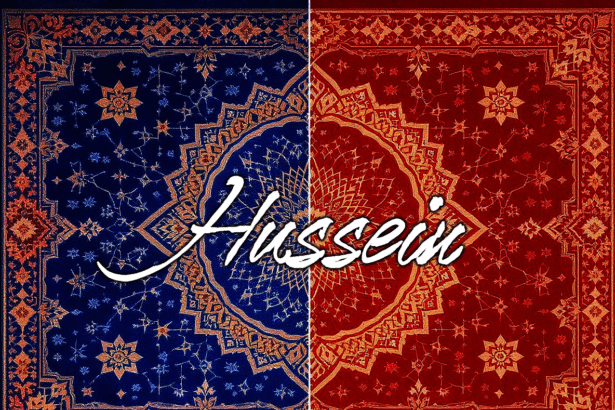The Strategic Imperative of Women’s Leadership in Islamic Societies & Global Business
Throughout history, people have talked about, debated, and changed the roles of women in Islamic cultures. Women have been very important in many areas of life, from politics and business…
Headlines
Most Read This Week
Islam’s Perspective on Humanitarian Aid and Refugee Crises
In a time characterized by humanitarian crises and global displacement, the principles of social justice, empathy, and compassion have become indispensable in addressing the obstacles encountered by displaced populations and…
Prophet Muhammad’s Leadership and Personality in Sahih al-Bukhari: Lessons for Modern Governance
Sahih al-Bukhari, one of Islam’s most authentic hadith collections, offers rich insights into Prophet Muhammad’s…
Islamic Perspective on Labour Laws and Dealings
The Islamic perspective on labor laws and dealings is profoundly rooted in the principles of…
“Islam is a religion of peace, solidarity, and mercy” – President of the Republic of Azerbaijan
President of the Republic of AzerbaijanDear Conference participants, I welcome you to the International Conference…
Just for You
Islamic Values in Business: Integrity, Fairness, and Trust
Ethics in the business world is the cornerstone of success and trust.In Islamic teachings ethical…
Unraveling Instability: A Strategic History of Middle East Conflicts
The Middle East has been a subject of global interest for an extended period of…
La Ikraha Fid Din: There Is No Compulsion in Religion
Overview Islam is a faith that supports the values of freedom, fairness, and individual responsibility.…
Technology and Innovation in the Islamic World: A Journey of Muslim Innovators
In a time when technology is changing quickly, the Islamic world is becoming more and…
Top Writers
News – Secretary-General Appoints Miguel Ángel Moratinos Cuyaubé of Spain United Nations Special Envoy to Combat Islamophobia
United Nations Secretary-General António Guterres today announced the appointment of Miguel Ángel Moratinos Cuyaubé of Spain as the United Nations…
Islamophobia in France Jumps 75% During First Five Months of 2025
France has experienced a 75% rise in Islamophobic incidents during the first five months of…
Technology and Innovation in the Islamic World: A Journey of Muslim Innovators
In a time when technology is changing quickly, the Islamic world is becoming more and…
The Halal Food Industry: Trends and Opportunities
Over the past decade, the global Halal food industry has experienced unprecedented development, which has been fueled by the growing…
Islamic Stance on War and Peace Building
In a time when societies are still beset by conflict and violence, it is imperative…
News Story – OIC-IPHRC condemns rising Islamophobia attacks on Muslims in India & IIOJK
The OIC Independent Permanent Human Rights Commission (IPHRC) has expressed grave concern over the alarming…
Must Read
Islamophobia Working Group Definition
In February, the government established an independent working group, chaired by Dominic Grieve KC, to advise on a definition of…
Beyond Interest: Why Islam Absolutely Forbids Riba & Its Various Forms
Understanding Riba in Islam The practice of charging excessive or fixed amounts on loans or commodity transactions is known as…
The Concept of Ummah: Building Unity in the Global Muslim Community
The word Ummah has been chosen for “nation” in the Arabic language.In Islam the concept of Ummah is not limited…
Alarming increase in anti-Muslim hate crime in Europe, according to EU official
The European Commission's coordinator for combating anti-Muslim hatred, Marion Lalisse, has expressed serious concern over a significant rise in Islamophobia…
Prophet Muhammad’s Leadership and Personality in Sahih al-Bukhari: Lessons for Modern Governance
Sahih al-Bukhari, one of Islam’s most authentic hadith collections, offers rich insights into Prophet Muhammad’s (ﷺ) character and leadership. Modern leadership studies draw on these narrations to highlight enduring qualities—justice,…
Prophet Muhammad’s Leadership and Personality in Sahih al-Bukhari: Lessons for Modern Governance
Sahih al-Bukhari, one of Islam’s most authentic hadith collections, offers rich insights into Prophet Muhammad’s…
Prophet Muhammad as a Tradesman: Policy Lessons for Modern Ethical Commerce
Prophet Muhammad’s leadership in trade and commerce offers more than spiritual guidance—it serves as a…
Faces of Muhammad — Europe’s Long Mirror and Today’s Struggles with Islamophobia
Historian John Victor Tolan’s Faces of Muhammad is more than a history of European portrayals…
WHO Chief Warns of War Crimes as Starvation in Gaza Worsens
WHO Chief Warns of War Crimes as Starvation in Gaza Worsens The head of the…
The Untapped Advantage: Discover How Islamic Finance Offers Transparent Growth for Businesses
Islamic finance is a distinctive, ethical, and transparent alternative in a world where conventional financial systems are the norm. It…
AI as a Weapon of Repression and Its Impact on Human Rights
The rapid transformation of modern society by artificial intelligence (AI) has brought about optimistic advancements in technology, healthcare, education, and…
Unveiling the Enduring Roots: A Critical History of the Palestine Issue
One of the longest and most complicated wars in modern times is the Palestine problem. Millions of people are still…
Minns Government announces $1m to address impacts of Islamophobia
The Minns Labor Government has announced $1 million in funding to help tackle Islamophobia and anti-Muslim hate in NSW. The…
Fundamental Principles of Islamic Political Thought
The teachings of Prophet Muhammad (PBUH) and the divine guidance found in the Quran serve as the foundation for Islamic…
Baku conference brings together 120 experts from 40 countries to address Islamophobia
An international conference in Baku on May 26–27 will bring together global experts to address the rising challenge of Islamophobia. Titled “Islamophobia in Focus: Unveiling Bias, Shattering Stigmas”, the event…
Prophet Muhammad’s Leadership and Personality in Sahih al-Bukhari: Lessons for Modern Governance
Sahih al-Bukhari, one of Islam’s most authentic hadith collections, offers rich insights into Prophet Muhammad’s (ﷺ) character and leadership. Modern leadership studies draw on these narrations to highlight enduring qualities—justice,…
Prophet Muhammad as a Tradesman: Policy Lessons for Modern Ethical Commerce
Prophet Muhammad’s leadership in trade and commerce offers more than spiritual guidance—it serves as a policy-relevant model of ethical entrepreneurship and a blueprint for Islamic business ethics. Even before his…
Faces of Muhammad — Europe’s Long Mirror and Today’s Struggles with Islamophobia
Historian John Victor Tolan’s Faces of Muhammad is more than a history of European portrayals of the Prophet of Islam. It is a story of projection: of how Europeans, from…
WHO Chief Warns of War Crimes as Starvation in Gaza Worsens
WHO Chief Warns of War Crimes as Starvation in Gaza Worsens The head of the World Health Organization (WHO), Tedros Adhanom Ghebreyesus, has issued a grave warning, stating that the…
Minns Government announces $1m to address impacts of Islamophobia
The Minns Labor Government has announced $1 million in funding to help tackle Islamophobia and anti-Muslim hate in NSW. The grant, which is funded by the Premier’s Department and Multicultural…
Gaza Strip: Humanitarians warn of worsening famine conditions, attacks on civilians
Of the 154 malnutrition-related deaths since October 2023 (including 89 children) reported by Gazan health authorities, the World Health Organization (WHO) said 63 occurred in July alone. These deaths follow…
Arab League Secretary-General Calls for Unified Action Against Islamophobia
Cairo, July 09, 2025, SPA -- Arab League Secretary-General Ahmed Aboul Gheit has stated Islamophobia is a serious and escalating issue that must not be overlooked. He called for unified…
Islamophobia Working Group Definition
In February, the government established an independent working group, chaired by Dominic Grieve KC, to advise on a definition of anti-Muslim hatred/Islamophobia. This step has been taken in response to…
Beyond the Narratives: The True Impact of Imam Hussein, Grandson of Prophet Muhammad
Imam Hussein, the revered grandson of Prophet Muhammad, stands as a universal symbol of resistance against tyranny and the embodiment of sacrifice for justice and truth. While his legacy is…
Islamophobia in France Jumps 75% During First Five Months of 2025
France has experienced a 75% rise in Islamophobic incidents during the first five months of 2025, according to data from the Interior Ministry. Between January and May, authorities recorded 145…










